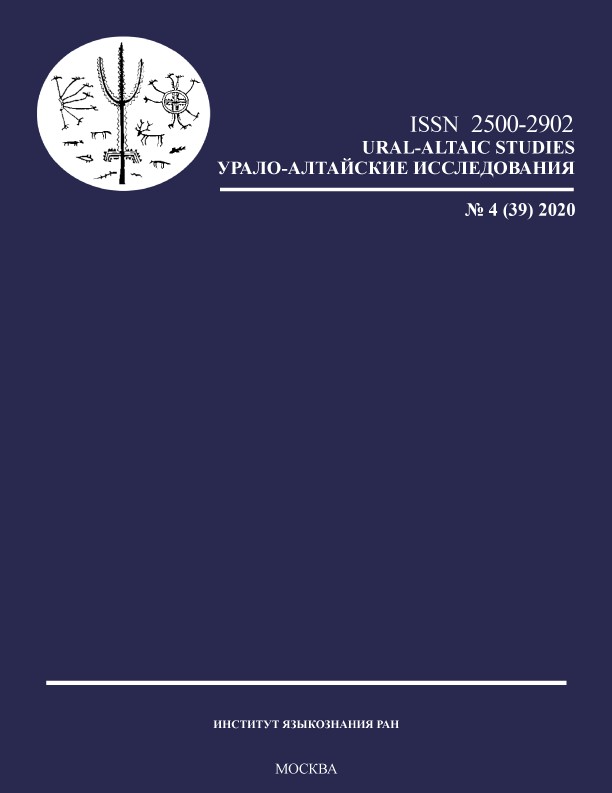Марийско-татарские языковые контакты в зеркале языковых биографий марийцев Московского региона
Mari-Tatar language contacts as reflected in the language biographies of Moscow Region Mari
Author(s): Marina V. KutsaevaSubject(s): Comparative Linguistics, Finno-Ugrian studies, Eastern Slavic Languages, Sociology of Culture, Ethnic Minorities Studies
Published by: Институт языкознания Российской академии наук
Keywords: internal Diaspora; Mari language; Tatar language; language contacts; multilingualism; Mari-Tatar bilingualism; Mari- Tatar-Russian trilingualism;
Summary/Abstract: The article deals with a narrow, yet important from the linguistic point of view aspect of the language biographies of representatives of the Mari Diaspora in the Moscow region — the issue of language contacts that the respondents in the sampling or senior members of their family used to maintain in the past with Tatars, and, accordingly, the Mari-Tatar bilingualism and Mari-Tatar-Russian trilingualism that existed among them. Basing herself on the testimonies and recollections of the respondents in the sampling, the author examines the prerequisites for these types of language contacts, on the one hand, and on the other hand, studies the causes that led to the extinction of Mari-Tatar language interactions and the gradual washing out of the Tatar component from the language biographies of Mari people. Among the extralinguistic factors that contributed to the development and maintenance of these language contacts, the following ones were identified: historical and geographical (the alternating location of Mari and Tatar villages or one common village); economic (close trade and economic relations between Mari and Tatars, common labor activities on a collective farm in the Soviet period); cultural (joint cultural and leisure activities). Despite the fact that Tatar was hardly ever used by Mari people outside their day-to-day communication, it performed a number of functions, though: communicative, symbolic, emotional, and that of a secret language. A possible reason for the decline of the language contacts was, according to the data obtained, the weakening of trade and economic ties: the gradual replacement of horse-drawn transport by automobile; poor welfare in rural areas in the 1990s and, as a result, the outflow of population to city areas, the collapse of collective farms and the extinction of a great number of villages. Mari-Tatar language contacts that developed at school (at various stages of school education) or in intra-family communication were equally considered in the paper.
Journal: Урало-алтайские исследования
- Issue Year: 2020
- Issue No: 04 (39)
- Page Range: 7-23
- Page Count: 17
- Language: Russian

